Search Results

Estimating Pi Using the Monte Carlo Method and Particle Tracing
We take a popular way to estimate the value of pi, the Monte Carlo method, and add particle tracing simulation to the process for a fun way to visualize the results.

Modeling Electric and Magnetic Fields from Power Lines
Modeling and simulation can be used to analyze fields generated by power lines, which can lead to a further understanding of how these fields interact with the surrounding environment.
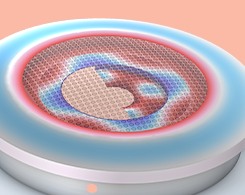
Full Acoustic Room Impulse Response of a Small Smart Speaker
The acoustic response of a small smart speaker can be modeled using the built-in hybrid FEM–ray coupling functionality in the COMSOL Multiphysics® software. Learn more here.
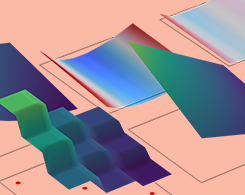
How to Evaluate Stresses in COMSOL Multiphysics®
Get a comprehensive introduction to evaluating various stress quantities in COMSOL Multiphysics®.
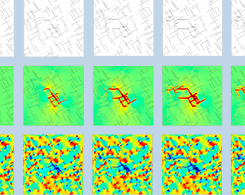
Fully Coupled Hydromechanical Modeling of Fractured Media
Dr. Qinghua Lei of ETH Zürich demonstrates a novel method for modeling fully coupled hydromechanical processes in fractured media with 2 examples: fluid injection and underground excavation.
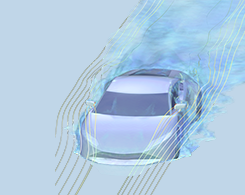
Simulating Wind Load on a Sports Car’s Side Door and Mirror
Vroom vroom: In this blog post, we use large eddy simulation (LES) and structural analysis to analyze wind loads and airflow on the door and side mirror of a sports car driving at high speeds.
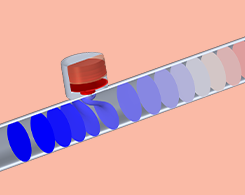
Modeling Acoustical Properties of Porous Media in COMSOL®
A guest blogger from the University of Sheffield introduces the Johnson–Champoux–Allard–Lafarge (JCAL) model for analyzing acoustical properties of porous media.
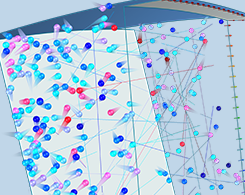
How to Analyze Turbomolecular Pumps with COMSOL Multiphysics®
Modeling gas flow in a turbomolecular pump calls for specialized numerical methods, because at such low pressures, the gas molecules rarely collide with each other.
